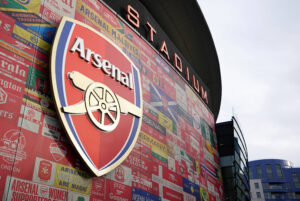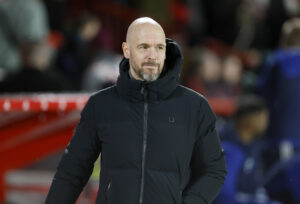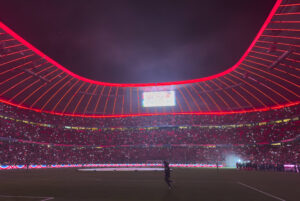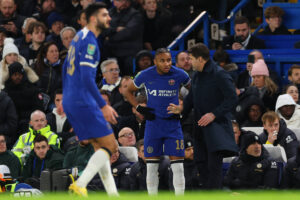In 2001 Gianluigi Buffon was transferred from Parma to Juventus for €53 million, still a world record fee for a goalkeeper. This transfer smashed the previous record set in 1994, for one of his predecessors in the Italian national team. When Gianluca Pagliuca moved from Sampdoria to Inter Milan following the World Cup in America, many said it was a ridiculous sum to pay for a goalkeeper. Although it wasn’t the most successful period in the history of the Nerazzurri, there is no doubt that it was money well spent.
Early Beginnings
Born in 1966, the young Pagliuca joined his hometown club Bologna as a schoolboy. He moved to Sampdoria after leaving school, and made his debut in the 1987-88 season. Pagliuca received a Coppa Italia winners’ medal, despite not playing in the final itself. The following season saw him oust Guido Bistazzoni to establish himself as the club’s number one, despite being aged just 21. With Pagliuca between the sticks, Sampdoria retained the trophy the following year, beating Diego Maradona’s Napoli 4-1 over the two legged final. They also reached the European Cup Winners’ Cup final, losing 2-0 to Barcelona at the Wankdorf Stadium in Bern.
Pagliuca was gaining a reputation of being one of the finest up and coming young goalkeepers in Europe. He was strong, athletic with great reflexes, and an intelligence and made him seem older than his years. With attacking talents such as Roberto Mancini, Attilio Lombardo and Gianluca Vialli in the side, and commanding centre back Pietro Vierchowod protecting the defence, Sampdoria were starting to look like serious title contenders. Now they had a world class goalkeeper to add to the equation.
Genoese Rise
The Genoa club continued their progression, and for the second season running they would compete in the Cup Winners’ Cup. On this occasion they would go one better, beating Belgian giants Anderlecht 2-0 in the final, the club’s first ever European trophy. The manner of their route to the final was tricky, beating Norwegian side SK Brann, Borussia Dortmund, AS Monaco and Grasshoppers Zurich along the way.
The club’s European exploits seemed to distract them from their domestic form, and they finished a disappointing 5th place in Serie A. Nevertheless Sampdoria had a side full of international players, and Pagliuca himself was called up by his country for the 1990 World Cup. Walter Zenga was Italy’s number one, and Pagliuca did not receive any playing time during the tournament but it showed how far he had come in a short space of time.
The Golden Years
The 1990-91 season was possibly the greatest in the Genoa club’s history. With Pagliuca in goal, and Vialli scoring 19 times at the other end, Sampdoria won their first, and so far only, Scudetto. His form that season also saw Pagliuca make his international debut for Italy, in a friendly against the USSR. The team failed to qualify for Euro 92, however, which saw manager Azeglio Vicini replaced by Arrigo Sacchi.
Sampdoria made a disastrous defence of their league title, and finished 7th in Serie A in 1991-92. In spite of this, they enhanced their continental reputation in the European Cup. This was the first time that the competition included the group stage format, which paved the way for what is now the Champions League. To qualify for the group phase, Sampdoria disposed of Rosenborg and Honvéd in the first two rounds.
There were just two groups of four teams, and Sampdoria found themselves rematched with Anderlecht, as well as Greek giants Panathinaikos. On paper their trickiest fixture seemed to be against reigning European champions Red Star Belgrade , but Sampdoria beat the Yugoslavians home and away. They topped their group to book their third European final in four years. Their opponents would once again be Barcelona, this time at Wembley.
The 1992 European Cup Final went to extra time, after a goalless 90 minutes. Neither side had previously lifted the trophy. Unfortunately for the Genoese side, their dreams were shattered by a trademark free kick by Ronald Koeman. As great a shot stopper as Pagliuca was, he had no chance with the shot which flew past him into the corner.
Leaving Genoa
Their failure to win a trophy (they exited the Coppa Italia in the semi-finals), coupled with their poor league position, meant that there would be no European football for Sampdoria in the 1992-93 season. This cost manager Vujadin Boškov his job, and he was replaced by Sven-Göran Eriksson. Another to depart the club that summer was Gianluca Vialli, who joined Juventus for a world record £12.5 million.
Sampdoria finished in 7th position for the second successive season, and it was clear that some rebuilding was needed. Ruud Gullit and David Platt were brought in during the summer of 1993, from Milan and Juventus respectively. There was no question of Pagliuca’s position being in any danger, however. By now he was undisputed first choice for club and country. It seemed to be not a question of if he would leave the Luigi Ferraris Stadium, but when.
Sampdoria played some fantastic football during the 1993-94 season. They finished 3rd in Serie A, just six points behind champions Milan. They also won the Coppa Italia, beating Ancona 6-1 over the two legs of the final. It had, however, been pre-arranged that Pagliuca would leave Genoa at the end of the season. Inter splashed out £7.5 million for his services, which was a world record transfer fee for a goalkeeper at the time. As part of the deal, legendary goalkeeper Walter Zenga headed the other way. Ironically, Pagliuca had already replaced Zenga as Italy number one, and would now do the same at the San Siro.
USA 94
Pagliuca joined the Italy squad for the 1994 World Cup in the USA, but his tournament got off to a shaky start. He was caught well off his line against the Republic of Ireland in the opening match, as Ray Houghton lobbed him to record a shock 1-0 victory. In Italy’s second game, against Norway, Pagliuca was shown a straight red card for handling outside the area. This gave him the unwanted record of being the first goalkeeper to be sent off in the World Cup finals. Italy went on to win 1-0, but their first choice keeper would serve a two match ban.
Pagliuca returned for the quarter-final tie against Spain, which Italy won 2-1 in extra time. They won the semi-final against Bulgaria by the same scoreline to book a final date with Brazil. In the Pasadena Rose Bowl, following a goalless 120 minutes, the final went to penalties. Pagliuca created another record by being the first goalkeeper to save a penalty from a shootout in the World Cup Final. It ultimately mattered little, however, as Brazil were the ones who held their nerve to lift the trophy for the fourth time.
Inter
Regardless of the many millions spent by Inter during the 1990’s, Pagliuca’s time at the San Siro was not exactly trophy-laden. Despite boasting talents such as Ronaldo, Dennis Bergkamp, Roberto Baggio and Youri Djorkaeff, they continually flattered to deceive. Year on year, after a lavish spending spree by new owner Massimo Moratti, they would be tipped as title contenders.
In this time, Pagliuca regularly showed just why Inter had splashed out so much money on him. He seemed to improve year after year, unlike his club. What probably didn’t help matters was that Moratti was fond of hiring and firing managers on a regular basis. Such a platform does not make a stable club, and this was shown with the results on the pitch. Inter finished 6th and 7th, respectively, during Pagliuca’s first two seasons in Milan, and suffered early UEFA Cup exits in both campaigns.
Towards the end of the 1995-96 season, future England manager Roy Hodgson took charge and results began to improve. Inter secured a European place by virtue of Juventus winning the Champions League. Unfortunately for Pagliuca, the emergence of Angelo Peruzzi at Juventus had not gone unnoticed by the national team. He would soon usurp the Inter goalkeeper as his country’s number one, although Pagliuca remained an important squad member.
The following season saw them secure a third place finish and reach the UEFA Cup Final, which they lost to Schalke on penalties. Despite their fortunes improving, Hodgson was replaced by Luigi Simoni. It also meant that Pagliuca had now been on the losing side in the final of all three of UEFA’s cup competitions.
The only season in the 1990’s where Inter actually challenged for the Serie A title was 1997-98. Once again, Pagliuca was magnificent, but this was helped in no small part by the goals of Brazilian striker Ronaldo. They finished runners-up to Juventus, but went one better in the UEFA Cup by beating Lazio 3-0 in the final. Inter’s league position meant that they also qualified for the Champions League for the first time since its restructure.
A poor start to the campaign meant that Simoni was dismissed in November 1998. Before the end of the season, Inter would have a further three managers at the helm. Once again, this turmoil affected matters on the pitch and Inter finished a disappointing 8th in Serie A. They were also eliminated from the Champions League in the quarter-finals, by eventual winners Manchester United.
Marcello Lippi was placed in charge of the Nerazzurri at the beginning of the 1999-2000 season. One of his first acts was to replace Pagliuca with the same man who had taken his number one spot at International level. Just as Pagliuca had replaced Zenga for club and country five years earlier, Peruzzi had now done the same to him.
Later Career
Despite several offers, Ginaluca Pagliuca joined his hometown club Bologna, where he stayed for seven seasons. In this time he was their first choice goalkeeper, and even stayed with the club when they were relegated to Serie B in 2004-05. After a season of playing in Italy’s second tier, he helped his club back to the top flight. He then joined Ascoli for one season, and retired in the summer of 2007.
Pagliuca held the record for the most appearances in Serie A for a goalkeeper at the time of his retirement. He was only recently overtaken by Gianluigi Buffon. He can also boast that nobody has saved more penalties in Italy’s top division, with 24 in total. Another record he can be proud of is that he was never on the losing side in the Milan Derby. In the five years he was at the San Siro, Inter never lost to their city rivals.
Final Thought
Because Gianluca Pagliuca did not play in a team that dominated either at home or abroad, he is often overlooked. He played in the final of the World Cup, European Cup, Cup Winners’ Cup and UEFA Cup, winning the latter two, but none of the sides he played for consistently dominated over a significant period of time. It’s because of this that Pagliuca becomes the first goalkeeper to be featured in the Forgotten Idols series. A world class player who never received the accolades he probably deserved.
Previous instalments in the Forgotten Idols series are below:
Part 1: Dejan Savićević Part 2: Stefan Effenberg Part 3: Guiseppe Signori
Part 4: Miguel Ángel Nadal Part 5: Darko Pančev Part 6: Oliver Bierhoff
Part 7: Nuno Gomes Part 8: Mark Hateley Part 9: Andrei Kanchelskis
Part 10: Jari Litmanen
Main Photo






